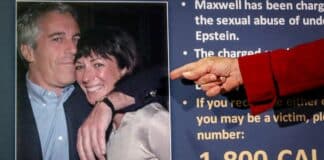Steve Bannon “had no choice” but to disobey a subpoena from the House special committee investigating the Jan. 6 incidents at the Capitol because he’d been instructed by his lawyer not to participate because of former President Donald Trump’s executive privilege, David Schoen, the attorney now representing Bannon, said Tuesday.
“Mr. Bannon’s lawyer received a letter on behalf of former President Trump, invoking the privilege, directing him not to appear, directing him not to turn over documents,” Schoen, who also represented former President Donald Trump during his impeachment proceedings earlier this year, told CNN’s Brianna Keilar on “New Day.” “That’s how privilege is invoked. And as a layperson, once privilege is invoked, in my view, based on the advice he got from his lawyer, Mr. Bannon had no choice.”
Bannon, a longtime ally of Trump’s, was released without bail Monday after a hearing on criminal contempt charges for defying the Jan. 6 committee’s subpoena. He was indicted last Friday on two counts of criminal contempt — one for refusing to appear for a congressional deposition and the other for refusing to provide documents in response to the committee’s subpoena.
Schoen said that if Bannon had turned over the documents the committee wanted, then the “genie is out of the bottle and it can’t be put back in.”
He added that the other attorney asked that if Bannon were to appear before the committee, then a representative of Trump, the reported privilege holder, should be present to invoke privilege on a question-by-question basis. However, Schoen said, the committee refused that.
Schoen also disagreed with Keilar when she said the former president hasn’t yet formally invoked executive privilege with the committee.
“This is how privilege is invoked,” said Schoen. “The privilege holder identifies and communicates with the person who has been directed to provide what he believes to be his privileged information, and that person acts accordingly.”
Schoen further said Bannon shouldn’t be prosecuted as a criminal over not responding to the subpoena, and that the question of executive privilege can be invoked in Trump’s case, even though he’s no longer in office, basing his argument on a case involving late President Richard Nixon.
Keilar responded that some of the committee’s questions would involve Bannon’s conversations with people who can’t claim executive privilege, such as Rudy Giuliani or Bernie Kerik.
“This comes up regularly when privilege is at issue in depositions,” Schoen responded. “Here, (with) Mr. Bannon, there could be questions asked that have to do with privileged areas and not privileged areas.”
He also insisted that a court should decide whether Bannon should be charged criminally and questioned whether a political committee should have been formed to investigate the Capitol attacks.
“The American people deserve a fair and open-minded investigation in a matter this serious, not a committee made up of people exclusively who have prejudged the issue,” Schoen said. “That’s not an investigation.”
Schoen also refused to comment about whether Bannon has the documents the committee wants.
“I just got hired on Sunday,” said Schoen. “Today is the first day I saw the subpoena in the case. I’m prepared to talk about the process. That’s what interests me.”
Schoen further said he doesn’t think Bannon was referring to violence with his radio show comments about his impending court appearance, or for that matter, the violence that took place on Jan. 6.
The attorney also denied that Trump asked him to represent Bannon.
“I was contacted by someone on behalf of Steve Bannon to ask me if I would represent Steve Bannon,” Schoen said. “It had nothing to do with Donald Trump or anybody else.”






